Yesterday morning, a group of invited parties convened at the House of Lords to discuss a newly launched report from The Campaign for Science and Engineering (CaSE) in which the Government is called upon to improve its immigration policies. This new report proposes ways in which the Government can maintain the UK’s status as a leading global hub of science and engineering offering twelve positive recommendations.
Digital Science were proud sponsors of the event which included: a prestigious panel debate chaired by Lord Nigel Crisp, a lively floor discussion, and a short summary from our Chief Scientist, Jonathan Adams. The aims of the morning’s discussions were to examine the findings of the report, where CaSE argued that the Government’s anti-immigration rhetoric and immigration policies are putting the UK’s future economic and scientific success at risk.
The Panel Debate
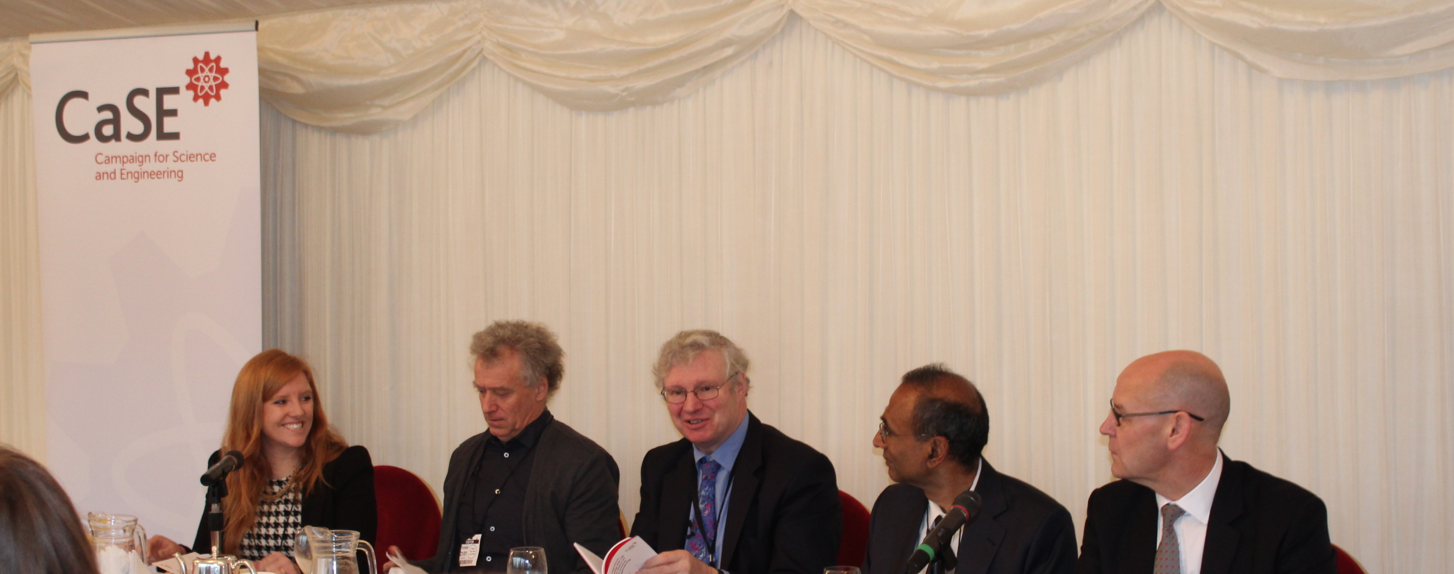
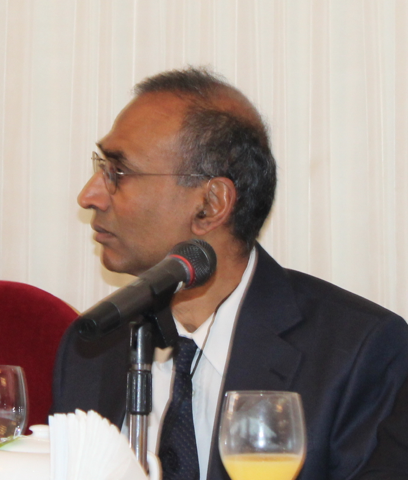
Kicking off the roundtable as the newly appointed President of the Royal Society was Sir Venki Ramakrishnan. This influential post adds to his already impressive CV, which includes a Nobel Prize for chemistry in 2009. Born and educated in India, Ramakrishnan is also the Deputy Director of the MRC’s Laboratory of Molecular Biology in Cambridge. He opened the discussions by highlighting the value of immigration to the UK research base, drawing on his own international experiences. He presented an interesting tidbit to the group – the last three out of five Presidents of the Royal Society have all been immigrants. Ramakrishnan added:
“…the UK’s “welcoming attitude” to immigrants is one of the reasons the UK has a world-class research base.”
Touching upon the application process, he considered how tedious procedures may put off Tier 1 applicants, the route used for outstanding and promising talent, quipping that they would very likely have put him off too! In line with one of the CaSE report recommendations, he suggested that exceptional talent and peer-reviewed applications should be fast-tracked. In addition, Ramakrishnan pointed out that the UK benefits from overseas science and engineering students, whether they stay or leave after study.
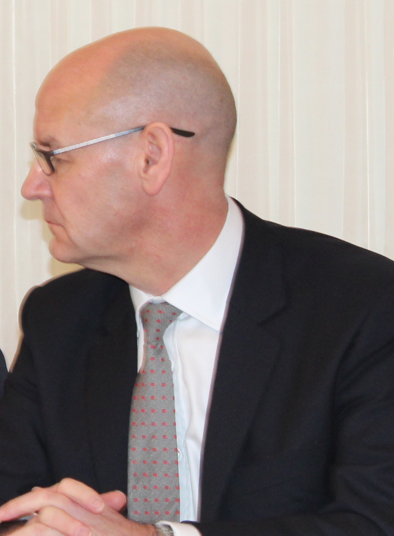 Next to the floor was Andy Furlong, Director of Policy and Communication at the Institution of Chemical Engineers. As someone heavily embedded in the UK engineering community, Furlong outlined the value of immigration to the UK engineering community and explained how the talent pipeline is reliant on an international marketplace which benefits both migrant and home researchers by sharing skills and building networks.
Next to the floor was Andy Furlong, Director of Policy and Communication at the Institution of Chemical Engineers. As someone heavily embedded in the UK engineering community, Furlong outlined the value of immigration to the UK engineering community and explained how the talent pipeline is reliant on an international marketplace which benefits both migrant and home researchers by sharing skills and building networks.
Migration provides a crucial element in meeting demand for engineering and the Government should actively promote the UK as a destination for engineers from all around the world, making it easy for them to come to the UK. He added that politicians must stop pandering to the prejudices stirred up by some press and parts of society. Furlong went on to make the bold statement:
“Rejecting global talent is at our own peril!”
Assistant Dir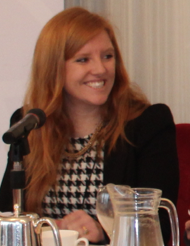 ector at CaSE, Naomi Weir, was next to the mic to outline the main findings and recommendations of their report. The report was informed by an extensive literature review and a call for evidence which attracted over 100 responses from individuals and organisations in the public, private, and charity sector. These were then followed up with over a dozen one-to-one interviews, two stakeholder meetings and an advisory group to explore the issues.
ector at CaSE, Naomi Weir, was next to the mic to outline the main findings and recommendations of their report. The report was informed by an extensive literature review and a call for evidence which attracted over 100 responses from individuals and organisations in the public, private, and charity sector. These were then followed up with over a dozen one-to-one interviews, two stakeholder meetings and an advisory group to explore the issues.
Weir went on to highlight a few of their recommendations but encouraged everyone to take the time to read all twelve of them.
She added that the Government needs to support international researchers in maintaining links with their home countries in order to promote international development. Immigration supports brain circulation around the world, which can be a positive thing for all countries – but we must also ensure brain drain does not occur only in one direction.
Weir explained how CaSE are eager to work with the Government to make sure the UK remains a global science hub:
“We need to promote the UK as a place to “earn and learn”. Immigration is essential to the continued strength of the UK science and engineering base and this Government has the opportunity to leave a positive legacy through its immigration policies.”
Weir added that our economic and cultural future depends on us getting off this slippery slope of negative policies. The positive steps that the report has outlined will help send a message that this is the goal of this Government. Weir concluded:
“We hope our report will prove useful to those in Government, and outside it, tasked with achieving this.”
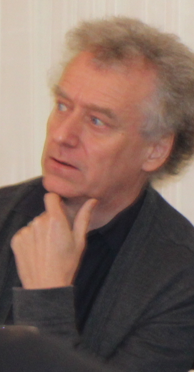
The final panel member to take the stage was Professor Alan Manning from the Migration Advisory Committee and Emeritus Professor at the London School of Economics. Manning opened with:
“When I look out of the window, I see everything is related to STEM.”
Manning continued onto the changes proposed by the latest MAC report, a review of Tier 2: balancing migrant selectivity, investment in skills and impacts on UK productivity and competitiveness, which was published on the 19th January. He acknowledged that there are some recommendations in this report people would not be so enthusiastic about.
Currently, to apply for a Tier 2 (General) visa, you must be a skilled worker from outside the European Economic Area and have a Certificate of Sponsorship from a UK employer who holds a valid Tier 2 sponsorship licence. There is an annual cap on the number of Tier 2 (General) visas that can be granted which stands at 20,700 and those with yearly earnings over £150,000 are excluded from the cap.
The recommendation made by CaSE is that the Tier 2 cap is sending out a terrible message to the world that we are not welcoming valuable workers and believes that it should be abolished or the Government should seek to mitigate its impact. The MAC report, however, recommends a Government proposal to introduce an immigration skills charge. Manning explained that universities should be asked to pay an immigration charge of £1,000 a year for each skilled migrant worker they hire. This means the immigration service charge for a three-year visa would cost £3,000 and a five-year visa £5,000. The MAC report calculates that presently this would raise over £200 million a year and the revenue should be used to support firms which boost the human capital of UK residents. Manning explained that their report’s recommendations are not unreasonable and offer a balance with the aim of the charge being to incentivise employers to reduce their dependence on migrant staff.
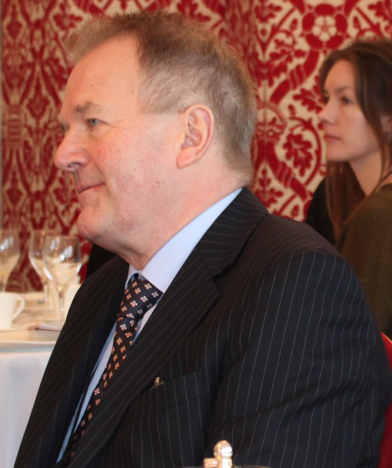 Once the panel discussions came to an end, Lord Crisp opened the floor to a healthy debate that was nicely rounded off with some final sentiments from our Chief Scientist, Jonathan Adams. Back in 2013 Adams analysed papers from the past three decades and found that the best science comes from international collaboration. Adams concluded:
Once the panel discussions came to an end, Lord Crisp opened the floor to a healthy debate that was nicely rounded off with some final sentiments from our Chief Scientist, Jonathan Adams. Back in 2013 Adams analysed papers from the past three decades and found that the best science comes from international collaboration. Adams concluded:



 Next to the floor was Andy Furlong, Director of Policy and Communication at the Institution of Chemical Engineers. As someone heavily embedded in the UK engineering community, Furlong outlined the value of immigration to the UK engineering community and explained how the talent pipeline is reliant on an international marketplace which benefits both migrant and home researchers by sharing skills and building networks.
Next to the floor was Andy Furlong, Director of Policy and Communication at the Institution of Chemical Engineers. As someone heavily embedded in the UK engineering community, Furlong outlined the value of immigration to the UK engineering community and explained how the talent pipeline is reliant on an international marketplace which benefits both migrant and home researchers by sharing skills and building networks. ector at CaSE, Naomi Weir, was next to the mic to outline the main findings and recommendations of their report. The report was informed by an extensive literature review and a call for evidence which attracted over 100 responses from individuals and organisations in the public, private, and charity sector. These were then followed up with over a dozen one-to-one interviews, two stakeholder meetings and an advisory group to explore the issues.
ector at CaSE, Naomi Weir, was next to the mic to outline the main findings and recommendations of their report. The report was informed by an extensive literature review and a call for evidence which attracted over 100 responses from individuals and organisations in the public, private, and charity sector. These were then followed up with over a dozen one-to-one interviews, two stakeholder meetings and an advisory group to explore the issues.
 Once the panel discussions came to an end, Lord Crisp opened the floor to a healthy debate that was nicely rounded off with some final sentiments from our Chief Scientist, Jonathan Adams. Back in 2013 A
Once the panel discussions came to an end, Lord Crisp opened the floor to a healthy debate that was nicely rounded off with some final sentiments from our Chief Scientist, Jonathan Adams. Back in 2013 A